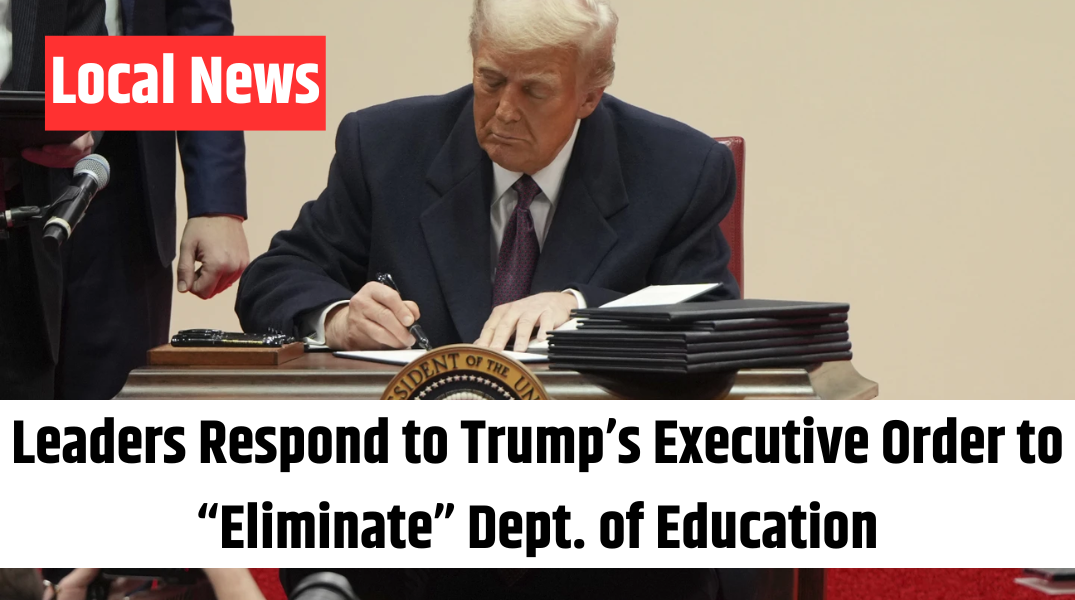
SALT LAKE CITY – Utah officials and educators are weighing in on former President Donald Trump’s executive order aimed at closing the U.S. Department of Education. The order, signed Thursday, directs the Secretary of Education to take steps toward dismantling the department while ensuring continued support for essential programs.
During the signing ceremony, Trump emphasized the need for change in the American education system, stating, “Everyone knows this is the right move. We have to focus on getting our children properly educated, and we have not been succeeding for a long time.”
The order aligns with Trump’s longstanding campaign promise to eliminate the federal education department, sparking a mix of reactions across Utah—ranging from support to strong opposition.
State Officials Respond
The Utah State Board of Education addressed the uncertainty surrounding the order, emphasizing their commitment to maintaining stability in the education system.
“Any major changes to federal education programs will require congressional action and likely face legal challenges,” the board stated. “Regardless of federal decisions, our mission remains the same: to ensure excellence in education for Utah students. We will work closely with state and local leaders to navigate any potential changes.”
Governor Spencer Cox expressed optimism about the move, noting that shifting control from the federal level to the states could lead to greater efficiency and financial benefits.
“We have an opportunity to send more money directly to the states while reducing federal spending,” Cox said during his monthly press conference. “Many governors—on both the right and the left—support this idea. Block granting funds to the states could improve resource allocation.”
Diverging Opinions on Education Policy
Congressman Burgess Owens, a vocal advocate for school choice, sees the executive order as a necessary step toward reforming the education system.
“We’ve lost a generation or two because of the Department of Education,” Owens said. “Instead of having bureaucrats in Washington pushing paperwork, we should be directing those funds straight to schools and districts where they can truly make a difference.”
However, not all Utah leaders share his enthusiasm. The Utah Education Association (UEA) strongly opposes the move, warning that it could negatively impact public school students and vital services.
“Eliminating the Department of Education will have harmful consequences for Utah’s students, particularly those who depend on federal support,” the UEA stated. “Educators across the state are deeply concerned about the future of critical programs that serve our most vulnerable populations.”
Concerns from Educators
John Arthur, Utah’s 2021 Teacher of the Year, voiced his apprehensions about what the department’s closure could mean for schools like his.
“I work at a Title I school that relies heavily on federal funding to support students’ learning needs,” Arthur said. “If you tell anyone that the agency providing essential support for their family or school is being dismantled—without a clear transition plan—it’s only natural to be alarmed.”
While Trump’s executive order does not immediately dissolve the department, it sets the stage for a long-term effort to phase it out. Closing the Department of Education would ultimately require congressional approval, a process that could take years.
Despite the legislative hurdles ahead, Owens remains confident in the initiative.
“Right now, billions of dollars are tied up in Washington to sustain administrative jobs,” he said. “Imagine if that money went directly to the states—it would expand school choice and provide better educational opportunities for kids across the country.”
As the debate continues, Utah leaders and educators will be watching closely to see how the executive order unfolds and what it means for the future of education in the state.




